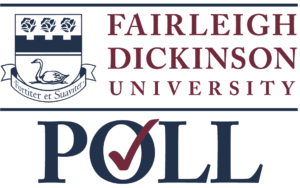Understanding Deportation Concerns Among New Jersey Voters and the Role of Fairleigh Dickinson University

Recent findings from a comprehensive poll conducted by Fairleigh Dickinson University shed light on the perspectives of New Jersey voters regarding immigration policies, deportation fears, and political approval ratings. As the political landscape evolves, understanding voter sentiments—especially in a diverse state like New Jersey—becomes crucial for policymakers, educators, and community leaders alike.
Analyzing Deportation Concerns Among NJ Voters
The FDU Poll revealed that approximately 28% of likely voters in New Jersey express significant worry about deportations impacting themselves or their families. This concern is particularly acute among Hispanic or Latino/a voters, with about half (50%) indicating apprehension. Such figures highlight the persistent anxiety within immigrant communities, even in states that have historically been more tolerant and accommodating.
This concern stems from the federal immigration policies enforced under the current administration, which many perceive as aggressive in deporting undocumented immigrants. While large-scale immigration raids haven’t been as prevalent in New Jersey as in other states like California, the fear remains palpable, especially in urban counties such as Essex and Hudson, where nearly half of respondents expressed worry about deportations.
Understanding these fears is essential, but addressing them requires a nuanced approach—recognizing the diversity of experiences and perceptions among different demographic groups. For educators, community organizations, and policymakers, fostering environments of trust and providing accurate information about immigration policies can help alleviate unwarranted fears.
The Impact of Political Climate and Public Opinion on Immigration Policies
The same poll underscores the polarized perceptions of President Donald Trump’s administration. Only 37% of likely voters approve of his job performance, with disapproval spanning 55%. Notably, approval is sharply divided along party lines: 88% of Democrats disapprove, while 88% of Republicans approve. Among independents, the approval rating hovers around 29%, matching national trends.
Particularly telling is the widespread perception that the administration is doing “too much” in deporting undocumented immigrants—55% of voters hold this view. Such sentiments are strongest within Democratic circles (85%), whereas Republicans largely believe the effort is appropriate or insufficient. These distinctions reflect underlying tensions and the complexity of public opinion surrounding immigration enforcement.
For educators and advocacy groups, these insights emphasize the importance of balanced, factual discussions about immigration. Policies should be evaluated not only through political lenses but also through their societal impacts—and how they influence public fears and community cohesion.
The Role of Fairleigh Dickinson University in Community Engagement and Policy Education
As a key academic institution in New Jersey, Fairleigh Dickinson University (FDU) plays a vital role in fostering civic understanding and promoting research on pressing social issues such as immigration. Through its academic programs, public research, and community outreach efforts, FDU contributes to informed policymaking and community resilience.
FDU’s commitment to transparency and scholarly excellence is evidenced by initiatives like its upcoming public forum on immigration policy, which aims to bridge the gap between community concerns and government actions. The university’s research staff, including experts like Dan Cassino, provides critical analysis of voter behavior, political approval, and social attitudes—insights that can shape effective policy responses.
For students and community members interested in engaging with these issues, exploring FDU’s online programs and academic offerings related to political science, social justice, and public policy can be a valuable step toward active citizenship. The university also supports community education programs designed to inform residents about immigration rights and legal processes, helping to demystify complex federal policies.
Implications for Future Policy and Community Building
The findings indicate a significant portion of New Jersey’s electorate is concerned about immigration enforcement, which can influence upcoming elections and legislative priorities. Policymakers should consider these public sentiments when developing immigration and deportation policies, ensuring they balance enforcement with compassion and community stability.
Community organizations, universities like FDU, and local government agencies must collaborate to create inclusive environments that address fears, provide resources, and promote integration. Education campaigns highlighting immigrant contributions and clarifying legal rights can foster trust and reduce anxiety.
Moreover, fostering dialogue between different demographic groups—especially in urban centers—allows for more nuanced understanding and tailored policy solutions. Such efforts can lead to stronger social cohesion, even amid divergent opinions on immigration enforcement.
Take Action and Stay Informed
If you’re a resident interested in understanding more about immigration policies, voter attitudes, or opportunities for civic engagement, consider connecting with local community centers, universities like Fairleigh Dickinson University, or legal aid organizations. Staying informed through reputable research and participating in public forums can empower you to advocate for policies that reflect community needs.
To explore more about Fairleigh Dickinson University’s community programs and research initiatives, visit their What’s New page or their Academic Programs. Engagement and education are key to navigating complex social issues and building a resilient, inclusive society.
Are you interested in supporting community efforts or pursuing a related degree? Discover if FDU’s online or on-campus programs in political science, social justice, and public policy are right for you. Apply now or contact their admissions office to learn more about how you can contribute to positive change.
In summary, understanding voter concerns about deportation and immigration policies is essential for creating equitable and effective community strategies. Institutions like Fairleigh Dickinson University provide invaluable resources and research that can inform better policies and foster civic engagement.

